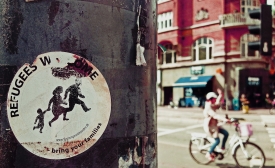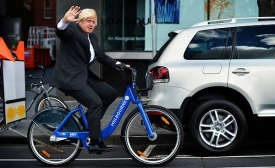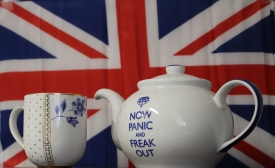EU
What the EU and Iran need is a strategic and structured dialogue. Strategic here means that it must reach beyond the list of specific (usually contentious) issues, look at the larger picture and set more long term goals for what kind of relationship the two parties want to have. Structured, in that it is underpinned by regular interaction on civil servant and technical levels dealing with a variety of sectors...
A photo exhibition titled "Sustainable Living Space in the EU" is being presented by members of the EU delegation to Korea in Seoul and Busan Sept. 25 to Oct 12. [...] The event is part of the EU's global initiative — EU Climate Diplomacy Week — aiming to raise public awareness on climate issues.

What happens when the government is sending one message, and citizens are sending another?
The planting of false stories is nothing new; the Soviet Union devoted considerable resources to that during the ideological battles of the Cold War. Now, though, disinformation is regarded as an important aspect of Russian military doctrine, and it is being directed at political debates in target countries with far greater sophistication and volume than in the past.

On Boris Johnson and Britain's post-Brexit soft power.

An analysis of the Brexit vote, Part 1.
What if the solutions to Europe’s most pressing problems lie not in politics or diplomacy, but in art and culture? With the European Union under pressure from economic stagnation, a wave of refugees, terror attacks and the possibility of Britain leaving the bloc, more than 150 cultural figures from 37 countries — including the actor Jude Law and the architect Rem Koolhaas — gathered here at a forum last week to explore that possibility.
Why, then, did the tsar’s forces weaken their own diplomatic case by taking away hundreds of Russian monastics? The best guess is that the entire monastic peninsula was on the verge of veering out of control because of the theological dispute which had been gathering pace for several years...







